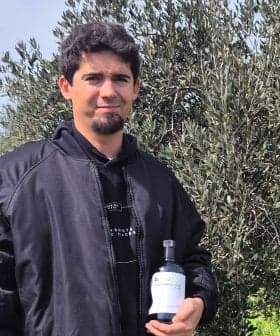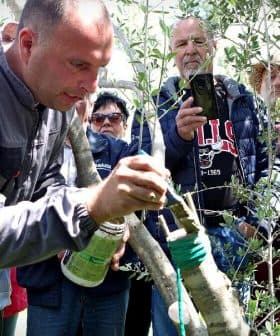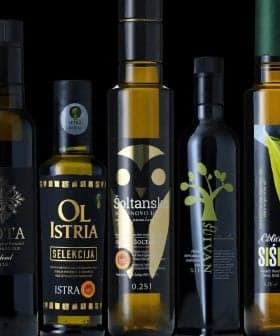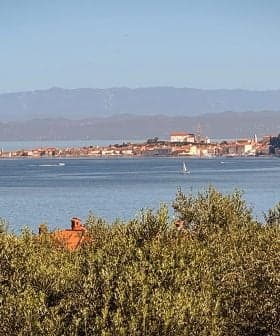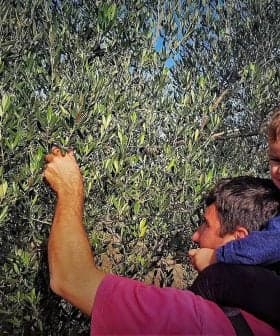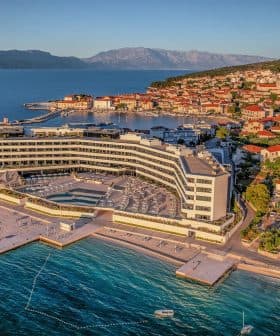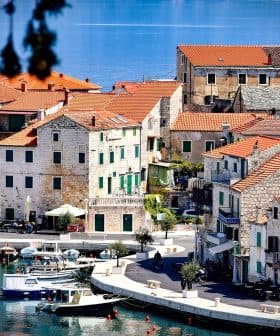Croatia and Slovenia Receive Joint EU Protection for Istrian Olive Oil
The two Balkan states now share the European Union PDO appellation for extra virgin olive oil produced on the Adriatic peninsula.
The European Union has recognized Istrian extra virgin olive oil as a Protected Designation of Origin (PDO), with the appellation “Istra” now registered for olive oil produced in the Istria peninsula shared by Croatia and Slovenia. The designation was granted after an objection from Slovenia regarding potential confusion with their own PDO olive oil, leading to a joint application and agreement between the two countries.
Extra virgin olive oil from Istria has been included in the European Union’s Register of Protected Designations of Origin (PDO) and Protected Geographical Indications (PGI) as a product of PDO.
The appellation “Istra” (the Croatian and Slovenian name for Istria) is now a registered PDO for olive oil produced in Istria, a peninsula located in the north Adriatic Sea that is shared by both Croatia and Slovenia.
The extension of the geographical area to Slovenian Istria is justified since Slovenian Istria produces olive oil sharing the same history, link and qualities with the Croatian Istrian olive oil covered by the application.
While 90 percent of Istria is located in Croatia, the northwestern part of the peninsula belongs to Slovenia.
The new appellation was announced in a regulation published on February 27, 2019 in the Official Journal of the European Union.
See Also:Protected Designation of OriginAfter receiving national Protected Designation of Origin status in 2015, the application for PDO recognition at the EU level for Istrian olive oil was first submitted by Croatia to the European Commission in July 2015.
Following the publication of the application in March 2016 and in accordance with procedures, which include a three-month objection period, a notice of opposition was filed by Slovenia on June 22, 2016.
The objection argued that the proposed appellation “Istarsko ekstra djevičansko maslinovo ulje” (Istrian extra virgin olive oil) may cause confusion as Slovenian olive oil from Istria already had PDO status in the EU’s register under the name “Ekstra deviško oljčno olje Slovenske Istre” (extra virgin olive oil from Slovenian Istria) since 2007.
The European Commission accepted the objection as admissible and in October 2016 asked the authorities of the two neighboring countries to reach an agreement on the issue.
Following consultations, an agreement was communicated to the Commission in May 2017 and a new joint application was filed jointly by both countries.
Several amendments were agreed on, the most important being that the proposed appellation be changed to “Istra,” and the production area enlarged to include the entire peninsula.
Following examination of the new joint application, the European Commission accepted the application for registration on the basis that conditions were fulfilled and that the appellation “Istra” be entered in the register of EU products with PDO.
The regulation published in the Official Journal declares that: “The extension of the geographical area to Slovenian Istria is justified since Slovenian Istria produces olive oil sharing the same history, link and qualities with the Croatian Istrian olive oil covered by the application. The use of the name ‘Istra’ has been exhaustively demonstrated in Slovenia and Croatia.”
PDO is the highest of the three designations under the EU product certification system for agricultural products, which protects product names from misuse and assures consumers of their authenticity.
A product labelled with a PDO designation is one that is produced, processed and prepared in a specific geographical area using local knowledge and methods.
The other two EU designations include PGI – for products with at least one stage of production, processing or preparation taking place in a certain geographical area – and TSG (Traditional Speciality Guaranteed), which designates products with a “traditional character” in terms of either its composition or production.
Croatia and Slovenia already share a PDO in the EU’s register for Istrian prosciutto, or cured ham, which was registered in October 2015.


